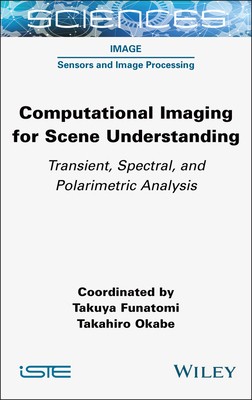
- We will send in 10–14 business days.
- Publisher: Wiley-ISTE
- ISBN-10: 1789451507
- ISBN-13: 9781789451504
- Format: 15.6 x 23.4 x 2.1 cm, hardcover
- Language: English
- SAVE -10% with code: EXTRA
Computational Imaging for Scene Understanding (e-book) (used book) | bookbook.eu
Reviews
Description
Most cameras are inherently designed to mimic what is seen by the human eye: they have three channels of RGB and can achieve up to around 30 frames per second (FPS).
However, some cameras are designed to capture other modalities: some may have the ability to capture spectra from near UV to near IR rather than RGB, polarimetry, different times of light travel, etc. Such modalities are as yet unknown, but they can also collect robust data of the scene they are capturing.
This book will focus on the emerging computer vision techniques known as computational imaging. These include capturing, processing and analyzing such modalities for various applications of scene understanding.
EXTRA 10 % discount with code: EXTRA
The promotion ends in 20d.17:38:42
The discount code is valid when purchasing from 10 €. Discounts do not stack.
- Publisher: Wiley-ISTE
- ISBN-10: 1789451507
- ISBN-13: 9781789451504
- Format: 15.6 x 23.4 x 2.1 cm, hardcover
- Language: English English
Most cameras are inherently designed to mimic what is seen by the human eye: they have three channels of RGB and can achieve up to around 30 frames per second (FPS).
However, some cameras are designed to capture other modalities: some may have the ability to capture spectra from near UV to near IR rather than RGB, polarimetry, different times of light travel, etc. Such modalities are as yet unknown, but they can also collect robust data of the scene they are capturing.
This book will focus on the emerging computer vision techniques known as computational imaging. These include capturing, processing and analyzing such modalities for various applications of scene understanding.


Reviews